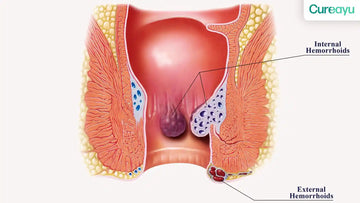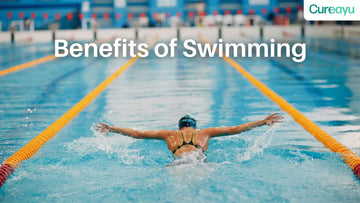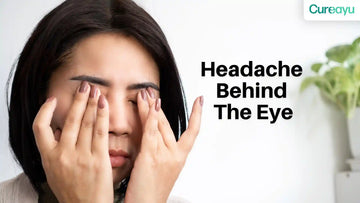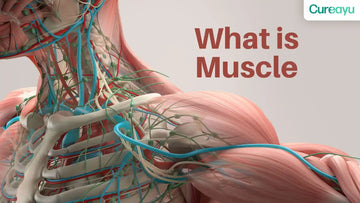Piles, or hemorrhoids, are a common yet often misunderstood condition that causes pain and discomfort, significantly affecting one's quality of life. Many believe surgery is the only solution, but there are non-surgical alternatives that offer relief. This guide aims to shift the narrative by exploring both modern and traditional approaches, focusing on non-invasive treatments that can help manage piles effectively.
One such promising remedy is the use of herbal supplements like Cureayu Piles Cure Capsules. By combining ancient wisdom with modern formulations, these supplements offer a natural pathway to healing, reducing symptoms without the need for surgery. This blog dives into the causes of piles and highlights non-surgical options for a pain-free life.
Also Read: Navigating Dietary Choices: Essential Foods to Avoid in Piles for Better Digestive Health
What Is Piles
Piles, or hemorrhoids, are swollen veins in the rectum and anus, similar to varicose veins in the legs. They can develop inside the rectum (internal hemorrhoids) or under the skin around the anus (external hemorrhoids). This condition leads to symptoms such as rectal bleeding, itching, and discomfort. In severe cases, hemorrhoids can become extremely painful, especially when they are strained by bowel movements.
The swelling in the veins can be attributed to increased pressure in the lower rectum, affecting blood flow and causing the veins to bulge. Depending on their severity, piles are classified into grades, with each stage presenting its unique set of challenges and discomforts.
Main Causes of Piles
Chronic Constipation
Chronic constipation is one of the primary causes of piles. When a person strains during bowel movements due to hard stools, it increases pressure on the veins in the anal area. This prolonged pressure can lead to the swelling and inflammation of these veins, resulting in hemorrhoids. Additionally, the act of straining can weaken the supporting tissues around the anal area, making it more susceptible to piles formation.
Pregnancy
Pregnancy is another common cause of piles, particularly during the third trimester. The growing uterus puts pressure on the pelvic veins, which can impede blood flow and cause the veins in the rectal area to enlarge. Hormonal changes during pregnancy can also contribute to the relaxation of vessel walls, making them more prone to swelling. Furthermore, the strain of childbirth can exacerbate existing hemorrhoids or cause new ones to form.
Obesity
Excess body weight can significantly increase the risk of developing piles. Obesity puts additional pressure on the veins in the pelvic and anal area, making them more susceptible to swelling and inflammation. Moreover, individuals who are overweight often lead sedentary lifestyles, which can contribute to poor circulation and increase the likelihood of constipation – both risk factors for piles.
Lack of Physical Activity
A sedentary lifestyle can contribute to the development of piles in several ways. Lack of physical activity can lead to poor circulation, which may cause blood to pool in the rectal veins, leading to swelling. Additionally, inactivity often correlates with a higher risk of obesity and constipation, both of which are known risk factors for piles. Regular exercise helps maintain healthy bowel movements and promotes overall circulatory health, reducing the risk of hemorrhoid formation.
Also Read: A Comprehensive Guide to Piles: Best Foods and Diet for Treatment
Can Piles Be Cured Permanently Without Surgery
Yes, it's possible to cure piles without resorting to surgery, especially in the initial stages. The key lies in early detection and adopting a combination of lifestyle changes, dietary adjustments, and incorporating natural remedies to alleviate symptoms and prevent recurrence.
How To Remove Piles Without Surgery
Diet and Lifestyle Adjustments
Diet plays a crucial role in managing and preventing piles. A high-fiber diet helps soften stools and promote smoother bowel movements, which reduces the strain and pressure on the rectal veins, the primary cause of piles. Incorporating fiber-rich foods such as whole grains, fresh fruits, leafy greens, and legumes into daily meals can aid digestion and minimize the risk of constipation. It is equally important to avoid processed foods, spicy meals, and excessive consumption of caffeine or alcohol, as they can aggravate piles symptoms. Hydration is another key factor—drinking at least 8-10 glasses of water daily helps to keep stools soft, making it easier to pass them without straining. Additionally, consuming probiotics, either through supplements or naturally in yogurt, can improve gut health and prevent flare-ups. A balanced diet combined with regular, mindful eating can work wonders in managing piles.
Sitz Baths
Sitz baths are one of the simplest yet most effective home remedies for easing the pain and discomfort caused by piles. This involves sitting in a tub filled with warm water up to your hips for about 10-15 minutes, several times a day, particularly after bowel movements. Warm water helps relax the muscles around the anus, reduces inflammation, and promotes blood circulation in the affected area, speeding up the healing process. For enhanced soothing effects, you can add ingredients like Epsom salts or witch hazel to the water, both of which are known for their anti-inflammatory properties. Not only do sitz baths relieve itching and irritation, but they also provide temporary relief from pain, making daily activities more comfortable. This gentle method is especially helpful for those dealing with external hemorrhoids, as it directly addresses the irritated tissues.
Exercise
Regular exercise is a powerful yet often overlooked tool in managing piles. Engaging in moderate physical activities such as walking, swimming, or yoga for at least 30 minutes a day can stimulate bowel movements and improve digestion, thereby reducing the risk of constipation, a major trigger for piles. Exercise helps regulate body weight, which is crucial because obesity increases pressure on the rectal veins, contributing to hemorrhoid formation. In particular, gentle exercises like Kegel exercises strengthen the pelvic floor muscles, helping to support the rectal area and improve circulation, reducing the chances of vein swelling. However, it's important to avoid high-intensity workouts or weightlifting that can exacerbate the condition by putting too much strain on the lower body. A consistent, moderate exercise routine can significantly contribute to the long-term prevention and management of piles.
Discover natural relief with Piles Cure Capsules, the best capsule for piles and an effective ayurvedic solution for hemorrhoids and related symptoms. This capsule, enriched with a powerful blend of ancient herbs including Pippali, Amalaki, Haritaki, Sudh Guggul, and Bibhitaki, is specifically formulated to provide the ultimate piles relief. These ayurvedic capsules for piles are 100% herbal and crafted to calm anal discomfort, reduce swelling effectively, and assist in healing wounds. With Piles Cure Capsules, you can experience benefits like promoting easy bowel movements and alleviating piles pain and discomfort, naturally and safely.
Conclusion
Facing piles does not always lead to the path of surgical intervention. With a comprehensive understanding of what piles are and the factors contributing to this distressing condition, individuals can arm themselves with the knowledge to seek alternative treatments. Adopting healthy lifestyle practices, dietary modifications, and the judicious use of herbal supplements like Cureayu Piles Cure Capsules can make a significant difference in managing piles. Embarking on this holistic journey towards healing not only offers relief but also reinstates a sense of well-being and control over one’s health.











